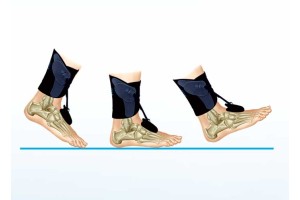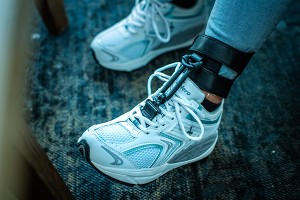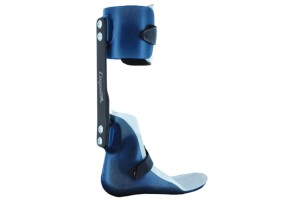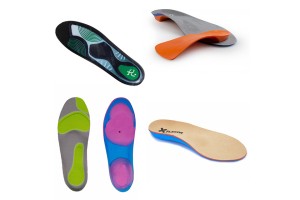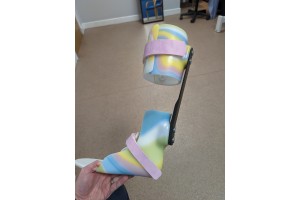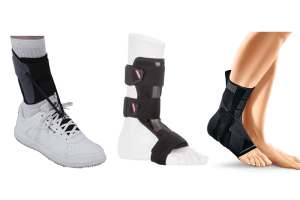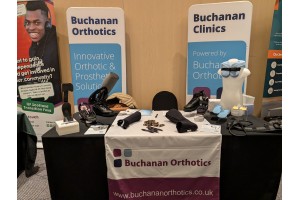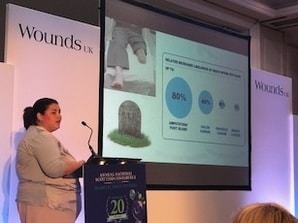
Those who suffer from Diabetic Foot or any clinician with an interest in Foot and Ankle conditions should be interested in hearing about what goes on in the annual Scottish Diabetic Foot Conference. Our podiatry and orthotic clinicians attend to make sure they're up to date on the latest knowledge and practices.
The 2017 Diabetic Foot Conference began with an overview of treatment and organisation of diabetic foot care in Scotland over the last 20 years, including SIGN guidelines, screening tools and CPR (Check, Protect, Refer) for feet. Many of these processes have now been adopted by other countries worldwide. In total, we’ve seen 30% reduction rate in amputation and 40% reduction rate in major amputations.
Diabetic Ulcers & Self-Management
First in the presentation lineup was David Armstrong from the University of Arizona. David spoke about how to maximise ulcer free days. He discussed the idea of patients not being 'healed' from ulcers but instead being in remission and the importance of teaching this idea to patients.
David also discussed importance on educating diabetic patients to causes of re-ulceration and importance of trying to minimise these causes. A lot of this talk was based on a recent journal article he published in the New England Journal of Medicine.
He also discussed new technologies being developed to help patients manage their own conditions and reduce risks or re-ulceration. These included use of smartphone apps to monitor activity to alert the patient to when to reduce activity to prevent ulceration, use of bath mats/socks to monitor temperature pressure and joint angles again alerting patients to risk and insoles which will automatically adjust when areas of high pressure are detected to reduce pressure in these areas.
Diabetic Inpatients
Aileen Campbell, the Scottish Minister for Public Health, spoke about NHS commitment to diabetic foot care in Scotland. In particular, Aileen discussed diabetic inpatient care as 20% of inpatients are diabetic. In March, a letter was sent to all health boards to reinforce the importance of implementing CPR (Check, Protect, Refer) for feet as a method of reducing inpatient stays.
Diabetic Foot Operations
Roslyn Millar, orthopaedic foot and ankle surgeon in NHS Lanarkshire, discussed orthopaedic problems in diabetic feet. She talked about the approach she uses with minimally invasive operations to change shape and structure of the foot with overall aim to reduce forces to prevent skin breakdown/heal ulcers. This approach uses small, adapted dental burs which require very small incisions and bur out bone so it can be realigned. Roslyn advises this technique for foot conditions such as Charcot feet, hallux valgus deformities and lesser toe deformities. Due to the small incision, the risk of infection is reduced, healing time reduced and most surgeries are done as day cases.
Both Roslyn and Willie Munro then also discussed the use of total contact casting and offloading the foot post surgery - it was advocated that once out of a cast, patients should have an AFO (ankle/foot orthosis) for 6 months then footwear and insoles. It was suggested the footwear made for AFO can be reused with TCIs (total contact insoles) if thicknesses are kept similar.
Diabetic Amputations
Matthew Young, a consultant Physician in Lothian discussed the statistic that states 85% of diabetic amputations are avoidable. He questioned the reality of this statistic and how it’s been calculated. Emphasis was placed on preventing ulceration to avoid amputation which means education and treatments have to start sooner before ulceration occurs. He also advised how NHS England has introduced a root cause analysis for every diabetic amputation performed with aim of identifying the cause and helping to prevent future amputations for the same reason. Matthew stresses that this is being done to improve services, not to blame them.
Fixing Dad
The day was rounded off by an uplifting presentation from the Fixing Dad team. For those who haven’t seen the documentary, it charts how two brothers support their diabetic dad and take control of his health to reduce the effects of his diabetes. You can view the documentary can be viewed on the Fixing Dad website alongside other resources for patients looking to manage their health better. There is also plans for a follow-up documentary to be screened on the BBC this year.
Buchanan Clinic
If you are affected by foot and ankle problems, book your assessment with one of our podiatry or orthotic specialists.

